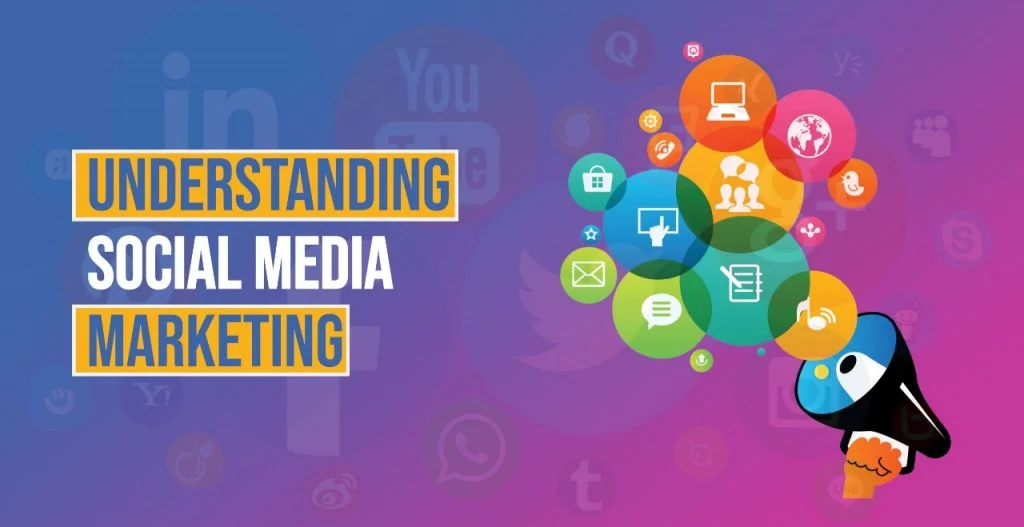Social media marketing has become a pivotal construct in any vigorous marketing strategy in today’s digital era. However, when stacked against the broader field of digital marketing, what does this mean for career prospects within the industry? After being in the industry for nine years, we’ve watched the landscape of the marketing world shift drastically. So, without further ado, let’s dive into how social media marketing fits into digital marketing and explore the plethora of opportunities in this dynamic field.
Social Media Marketing vs. Digital Marketing: A Comparative Overview
Social Media Marketing (SMM) and Digital Marketing are often used interchangeably; however, social media marketing is just a subset of the world of digital marketing.
1. Social Media Marketing
Social Media Marketing is geared toward leveraging different social media platforms like Facebook, Instagram, Twitter, TikTok, and LinkedIn to promote products, services, or brands. This can be done through organic content creation, targeted ads, analyzing engagement metrics, and leveraging influencers.
The main goals of a social media campaign could be to:
- Build brand awareness
- Audience Engagement
- Drive Traffic to websites
Due to the relatability of social media content, brands have succeeded in fostering communities and garnering brand loyalty with their audience.
2. Digital Marketing
Digital Marketing is an all-encompassing domain that covers all online marketing efforts. These do involve social media marketing; however, it is not limited to that. Digital marketing also involves SEO (search engine optimization), SEM (search engine marketing), content marketing, email marketing, and affiliate marketing.
The goal of digital marketing is to create a solid online presence and build a comprehensive sales funnel that is optimized to capture and convert prospects using various digital channels.
Digital marketing takes a multi-faceted marketing approach and often involves building an end-to-end sales funnel, from lead generation up to the conversion of the lead into a paying customer. An example of this could be:
- Using Pay-per-click (PPC) ads to generate leads
- Using social media to generate leads
- Using Email Marketing to generate leads
The Growing Demand for Social Media Marketing Jobs
As the importance of social media in business continues to grow, so does the demand for professionals specializing in this area. Here’s why social media marketing jobs are becoming increasingly prevalent:
As the importance of social media continues to grow in businesses, so does the demand for seasoned professionals who specialize in this area, leading to a surge in jobs related to SMM.
1. Increased Focus on Engagement:
Businesses have identified the value of direct engagement with their customers and building communities around their brands. This requires skilled marketers who can craft compelling content aligning with the brand’s image and tone of voice and manage interactions effectively.
2. Evolving Platforms and Trends:
Social media platforms are constantly improving with new updates to their features and algorithms that completely change their topography. Rather than spending valuable time to keep up to date with these evolving trends, businesses prefer to hire experts to keep track of these changes and adapt strategies accordingly.
3. Data-Driven Strategies:
Data is at the core of every good marketing strategy. To maximize ROI, marketers need to analyze performance metrics and refine strategies to ensure that Key Performance Indicators (KPIs) are being met.
4. Career Opportunities:
There are a multitude of roles available within the wide world of marketing. From social media account management to content creation to analyst work, there is something for everyone, as long as one is willing to put in the time and effort needed to master one’s particular domain. Depending on one’s goals, one can work in-house within companies and agencies or as a freelance consultant for multiple clients.
Conclusion
Despite social media being just one facet of the broad spectrum of digital marketing, it plays a fundamental role in most marketing strategies, especially B2C marketing (business-to-consumer). By creating relatable and authentic content, businesses directly targeting consumers can create a strong bond with their audience and use that bond to grow their brands further.
In the end, whether you’re comparing social media marketing to digital marketing or exploring career opportunities, one thing is clear: the future of marketing is profoundly social, and its impact is only set to grow.


